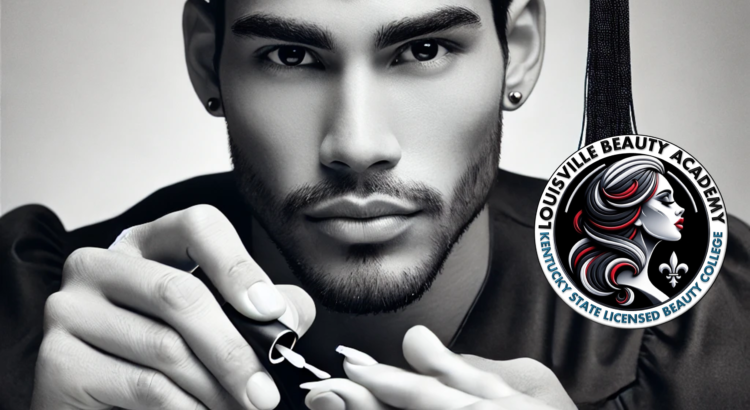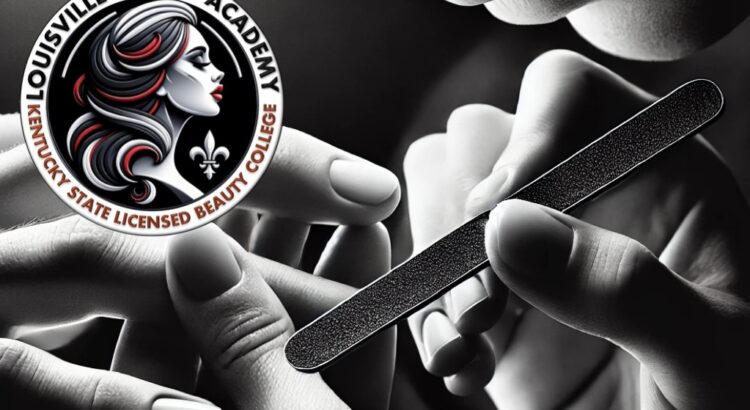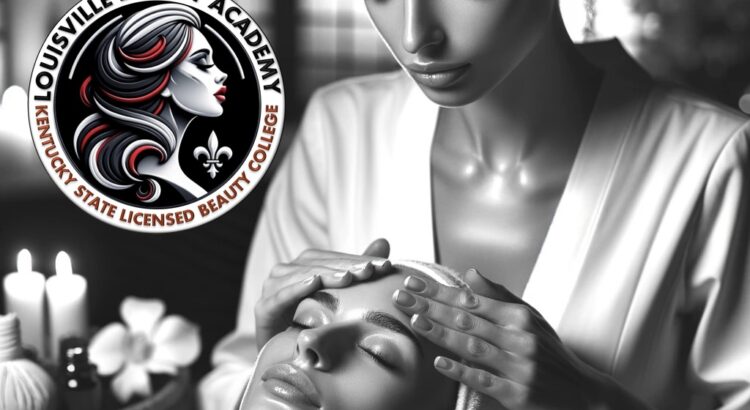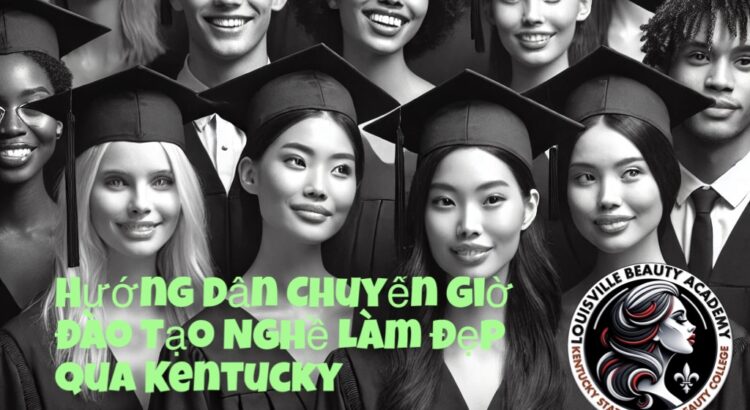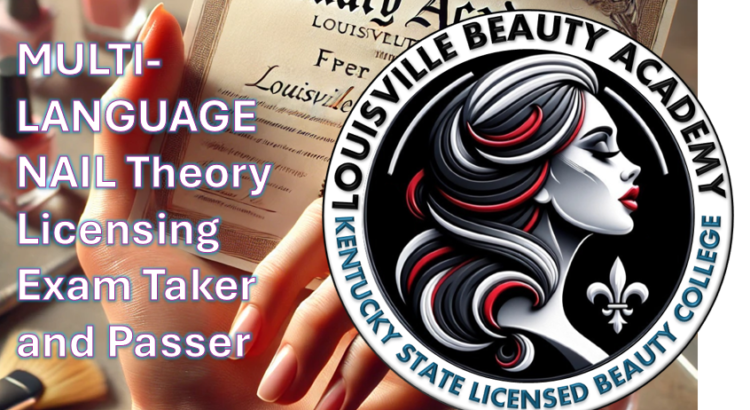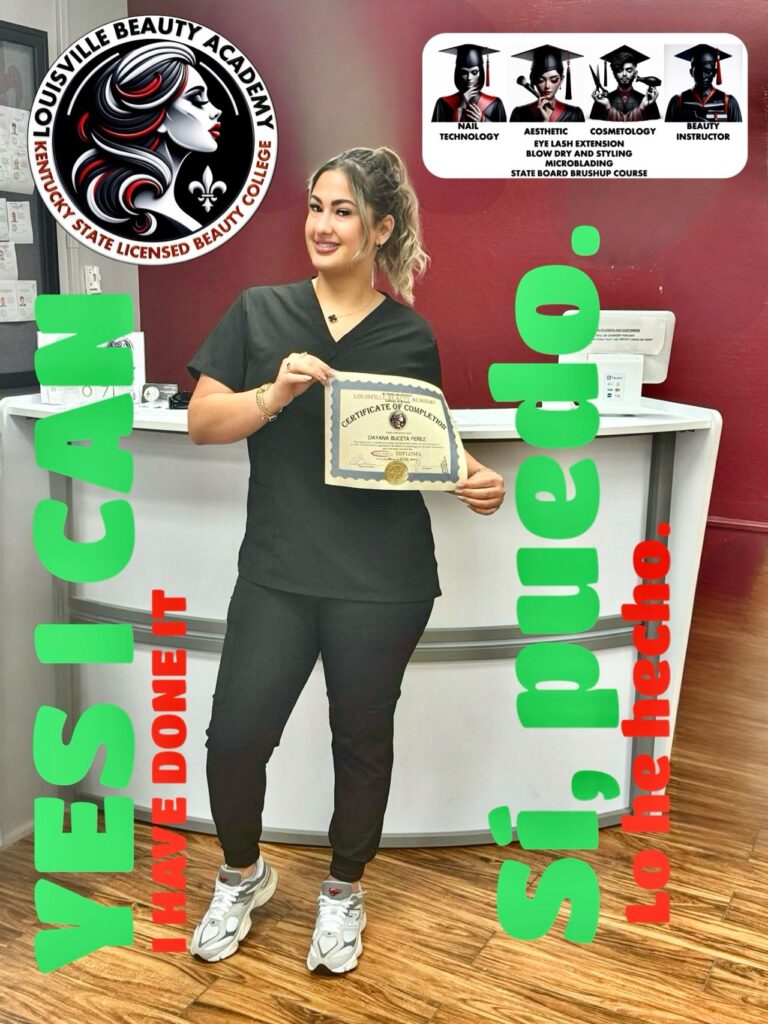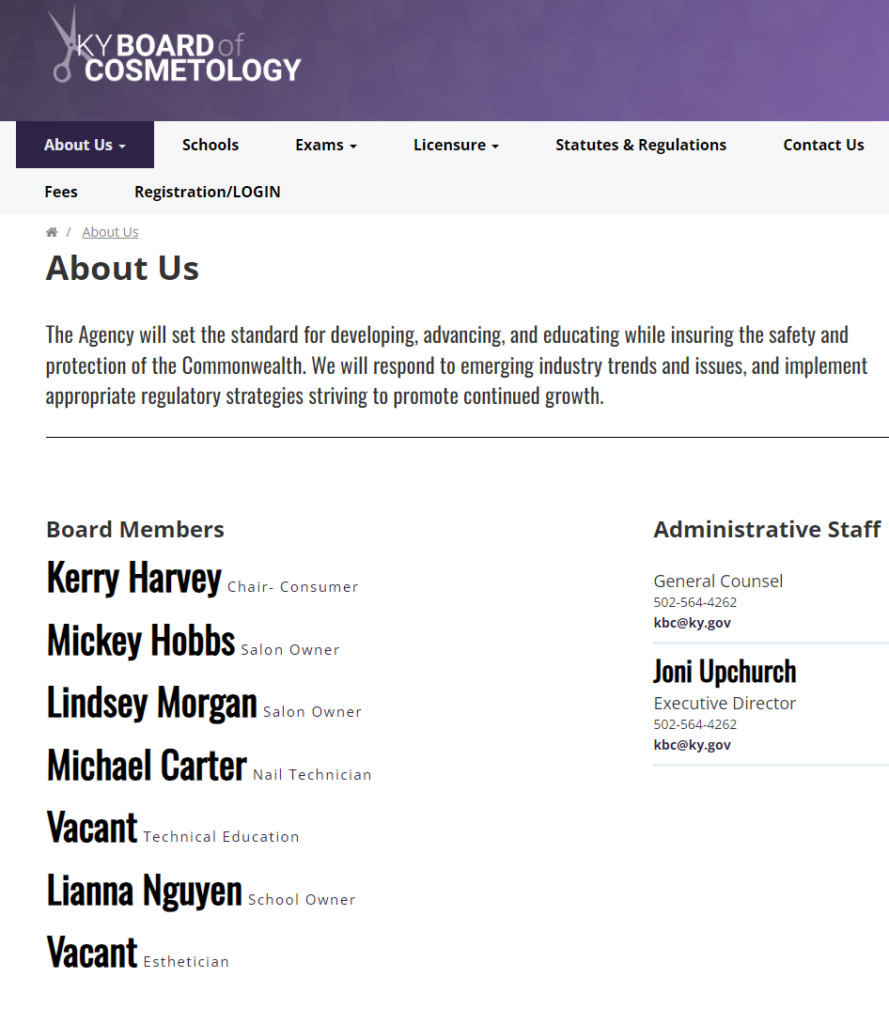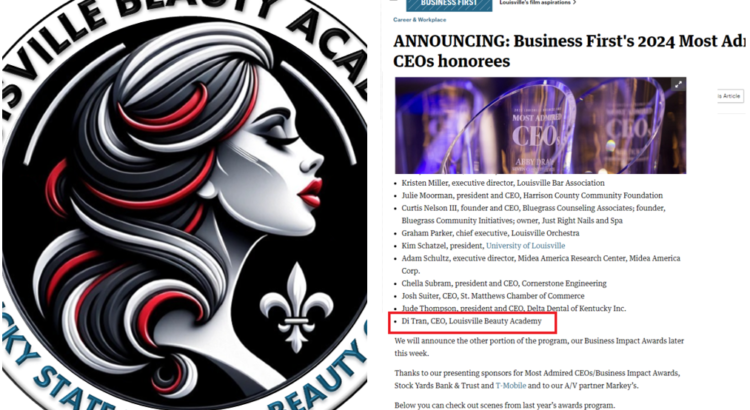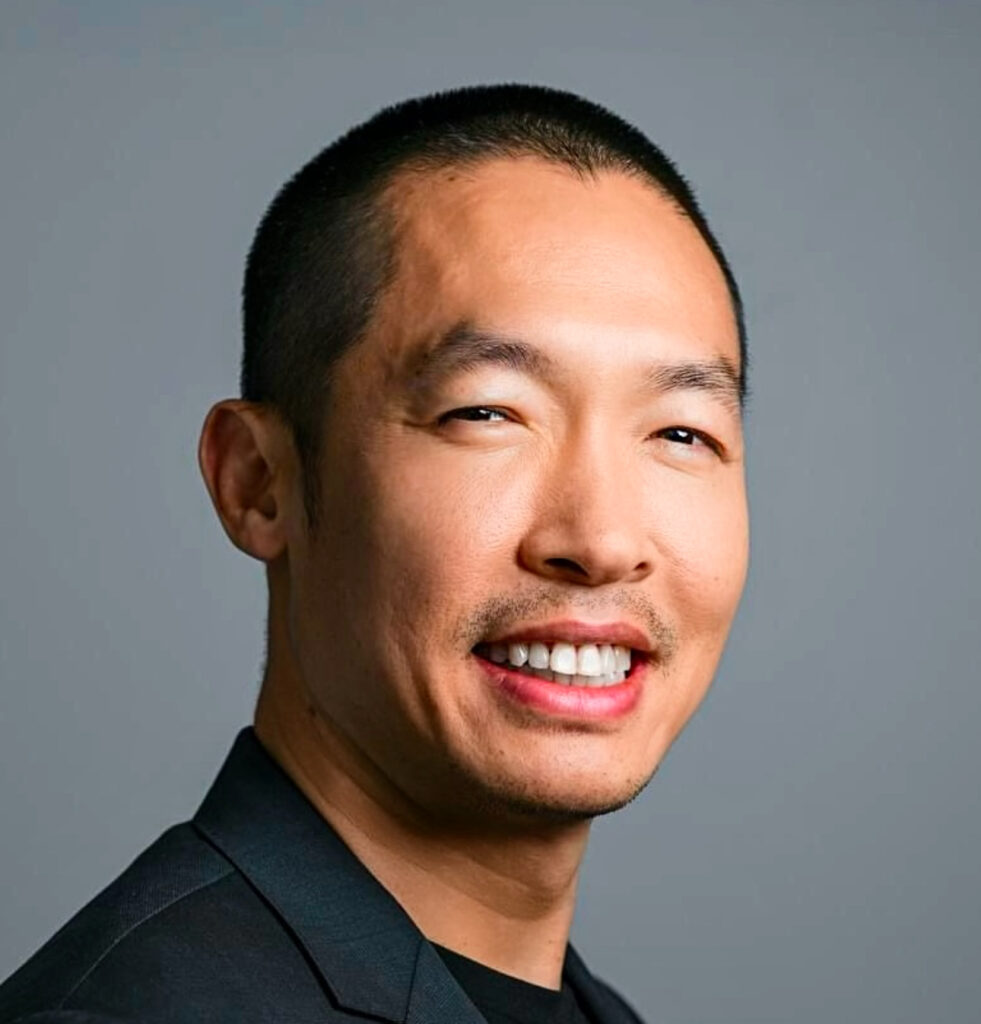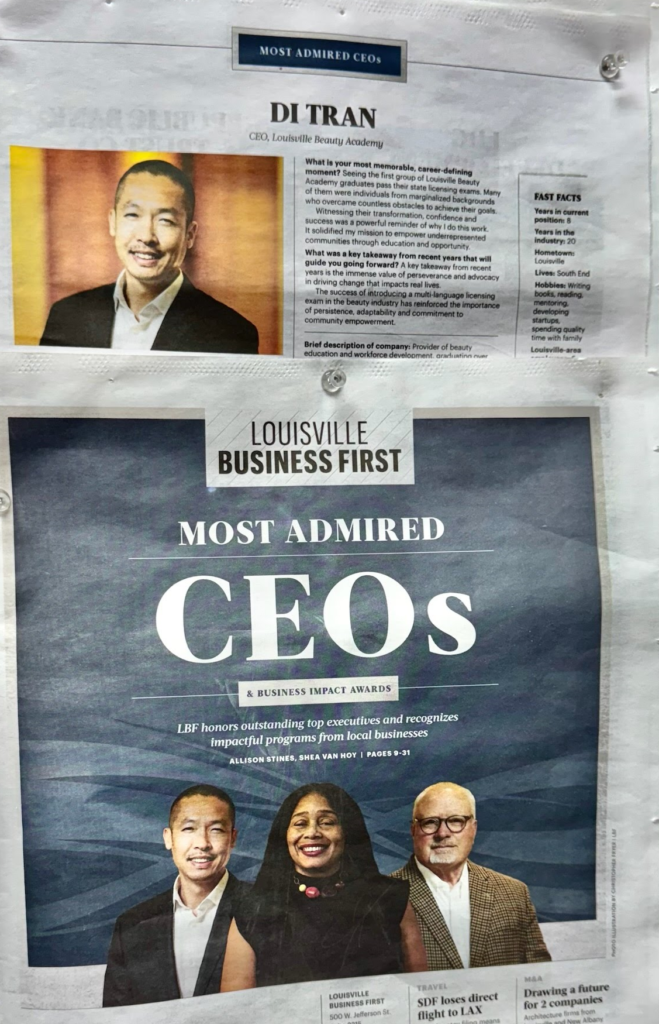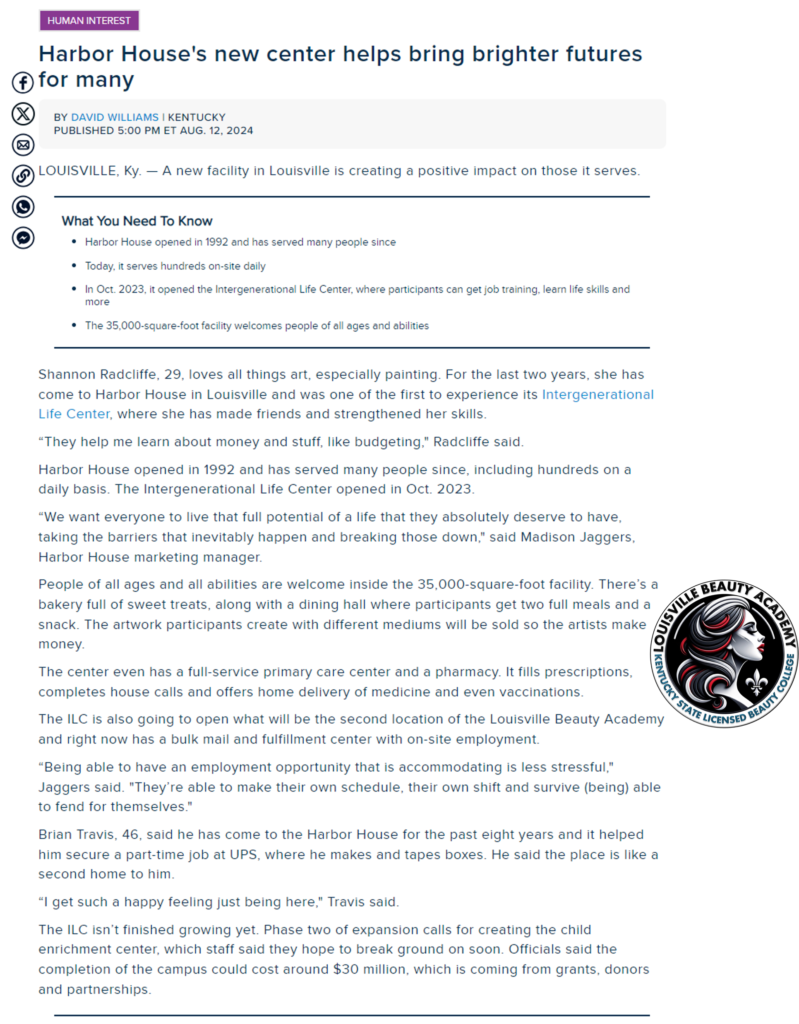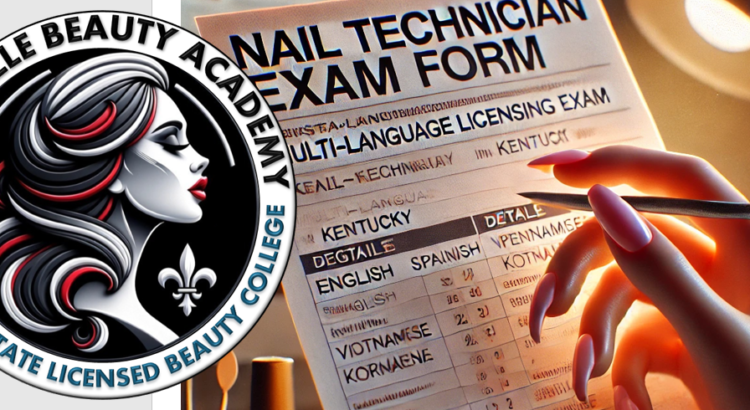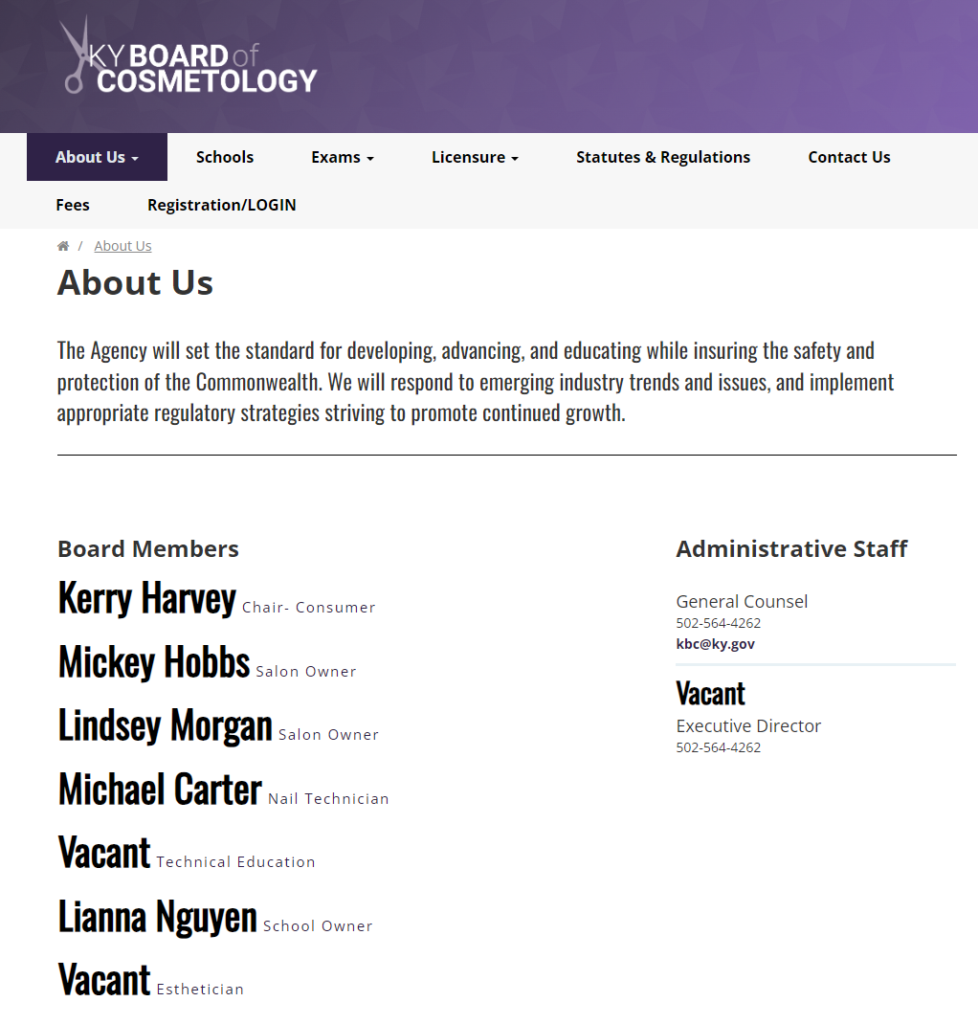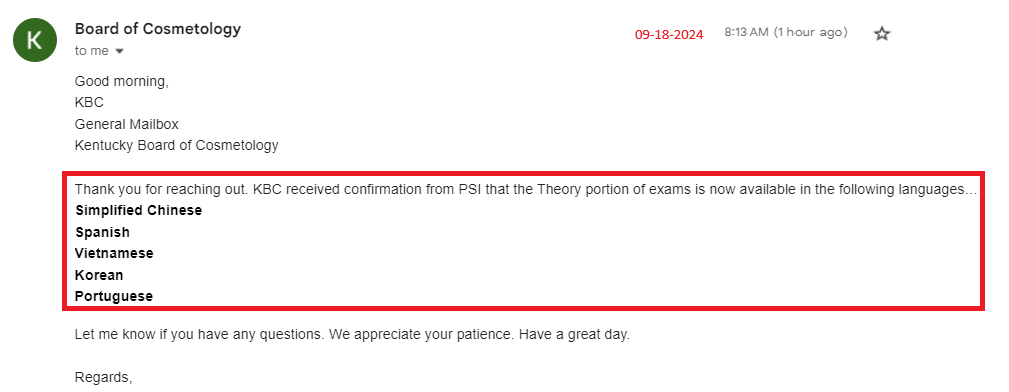Louisville Beauty Academy: Kentucky State-Licensed and State-Accredited Beauty College
At Louisville Beauty Academy, we are dedicated to providing a comprehensive education that ensures our students are prepared for successful careers in the beauty industry. The nail technician program at Louisville Beauty Academy is structured to ensure that each student acquires the fundamental skills necessary to excel, while complying with the highest standards of safety and professionalism as mandated by state regulations. Below, we present the minimum procedural requirements that each student must complete before graduation, in addition to advanced procedures as required by Kentucky State Licensing.
Completion of all listed procedures is mandatory for graduation and is part of the curriculum required to become a skilled and licensed nail technician in Kentucky. For further guidance or clarification on any procedure, students are required to seek assistance from their assigned instructors.
Detailed Procedure Descriptions for the Nail Program:
- Disinfecting Implements: All reusable tools must be properly sanitized according to state-mandated disinfection guidelines. This is to prevent cross-contamination and to ensure client safety, in compliance with Kentucky State Board regulations.
- Disinfecting Furniture: All surfaces, including workstations and chairs, must be cleaned and disinfected to maintain a hygienic working environment, as required by state health and safety standards.
- Disinfecting Foot Spa: The foot spa must be cleaned and disinfected after each use, in accordance with state-sanctioned sanitation practices to prevent the spread of infections.
- Handwashing: Proper handwashing techniques must be practiced before and after each service to minimize bacterial transmission, adhering to Kentucky State health and safety guidelines.
- Disinfecting Drill Bits: Nail drill bits must be cleaned and disinfected after each use in compliance with safety regulations to prevent contamination and ensure client safety.
- Exposure Incident: In the event of an exposure incident (e.g., a cut or injury), the correct procedure must be followed, including immediate cleaning, disinfection, and reporting in accordance with state regulations.
- Pre-service Set-up: All necessary tools, materials, and workspace must be prepared prior to servicing a client to ensure a safe and hygienic procedure.
- Post-service Set-up: The workspace must be properly cleaned and reset after each client, including disposal of waste materials and disinfecting surfaces to maintain a safe environment.
- Manicure: A complete manicure must be performed, including nail shaping, cuticle care, and polish application, in compliance with state requirements for nail services.
- Hand and Arm Massage: A hand and arm massage must be provided as part of the manicure service, focusing on client comfort and relaxation, as per Kentucky beauty service standards.
- Pedicure: A full pedicure must be performed, including nail trimming, foot filing, and cuticle care, ensuring compliance with health and safety protocols.
- Foot and Leg Massage: A foot and lower leg massage must be offered to promote relaxation and improve circulation during the pedicure service, in adherence to state regulations.
- Polish Application: Traditional nail polish must be applied, ensuring even coverage and clean edges, following state standards for nail application services.
- UV/Gel Polish: UV/gel polish must be applied, including curing under a UV or LED lamp, with proper removal techniques to maintain nail health, as required by state guidelines.
- Tip Application and Blend: Nail tips must be applied and blended smoothly with the natural nail to create a seamless appearance, in accordance with Kentucky licensing standards.
- Enhancement Removal: Nail enhancements must be safely removed using appropriate techniques to avoid damage to the natural nail, following state-mandated safety procedures.
- Tip with Overlay: Nail tips must be applied and covered with an acrylic or gel overlay for added strength and durability, as required by state licensing standards.
- Sculptured Nail with Form: A nail enhancement must be created using a sculpting form and acrylic or gel, shaping it to the desired length and style, in compliance with state regulations.
- Dip Powder Application: Dip powder nails must be applied by bonding powder to the nail surface, ensuring a durable finish in line with state-approved methods.
- Nail Flat Art: Flat nail art designs must be created using polish, brushes, or other tools to decorate the nails, in adherence to state requirements for artistic nail services.
- Nail 3-D Art: Three-dimensional nail art, such as flowers or other decorative elements, must be created to add texture and dimension, following Kentucky standards for nail artistry.
- Nail Shaping: Natural or enhanced nails must be shaped into the desired form, such as square, round, or almond, in accordance with state requirements.
- Sculpting with Forms: Sculpting forms must be used to create nail extensions with acrylic or gel, ensuring correct application for durability and aesthetics, as required by state guidelines.
- Odorless Acrylic Application: Odorless acrylic must be applied to create nail enhancements, using techniques that minimize exposure to chemical odors, in line with state health standards.
Louisville Beauty Academy is committed to ensuring that all students receive an education that meets the standards set forth by the state of Kentucky. Our accredited program prepares aspiring nail technicians for real-world success, emphasizing technical skills, client safety, and compliance with state licensing requirements.
For more information, please contact Louisville Beauty Academy or speak directly with your instructor.
Disclaimer: These procedures represent the basic core items required for all nail students. Additional procedures and updates may be mandated in accordance with changes in state law and market trends. Students are encouraged to stay informed of these changes and adapt accordingly to remain compliant with Kentucky State Board of Cosmetology requirements.
